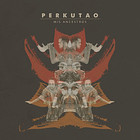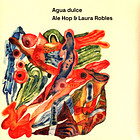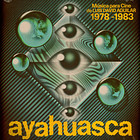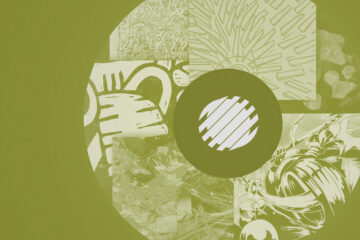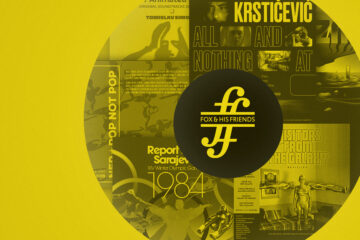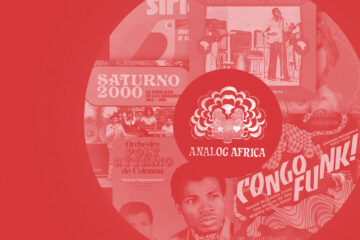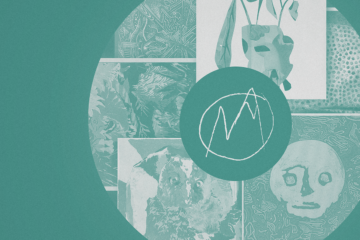Luis Alvarado didn’t have big plans when he started Buh Records, originally starting out by producing CDrs with photocopied cover artwork to be able to release music made by friends. »It was very much of the time,« he says today. »The CDr culture gave me freedom to experiment and to publish at low cost.« His hunch that Buh could evolve beyond all that has proven to be correct: almost twenty years later, the Lima-based label has become his full-time job and is internationally known. The attitude, however, Alvarado is quick to point out, has remained the same over the past two decades: »I think Buh is still scary,« he says in reference to the tongue-in-cheek name he chose in 2004. »It’s more than just a record label, it’s my way of life, and I think that all those who run record labels that go against the grain will always generate some kind of tension.«
And going against the grain it does. Since the beginning, Buh has provided a platform for adventurous music from all over the world that is often hard to categorise. In its vast back catalogue, Chinese noisenik Li Jianhong rubs shoulders with the Czech electronica band Gurun Gurun, the radical Berlin-based vocal improv Audrey Chen, Italian industrial pioneer Maurizio Bianchi or Franconian esotericist Baldruin. If there is a common thread, it is that Alvarado would like to find the individual records in a vinyl store, as he says. After 13 years of operating Buh, he started producing vinyl in 2017. This was not an easy task for a company located outside the power centres of an allegedly global music industry that is primarily located in North America and Western Europe. »I knew that this was the ideal format, but it required a strong investment and logistics as well as trustworthy people in Europe,« Alvarado says in regard to his label’s first vinyl release, the »Superfricción« LP by Liquidarlo Celuloide.
»›Traditional music‹ is a dangerous label,« he points out. »This is music is so fused and mixed that, from an objective point of view, it is also very modern.«
Luis Alvarado
The psych noise rock band is not the only local Peruvian act whose music Alvarado has made available for a broader international audience. Ever since starting the outlet as a platform for friends from the Lima scene in, he has put a heavy emphasis on the contemporary scene of his home country as well as its rich musical past. Recent releases include the acid rock group Búho Ermitaño, a collaboration between the Berlin-based experimental musician Ale Hop and Laura Robles as well as Perkutao with their meditative yet driving take on Afro-Peruvian percussion music. The latter’s »Mis Ancestros« is part of the Perspectives on Afro-Peruvian Music series that was inaugurated in 2019 with a compilation of recordings by Julio »Chocolate« Algendones. This series is part of a larger effort to document both the past and the present of regionally specific musical styles. Alvarado, however, neither wants Buh nor the actual music itself to be pigeonholed. »›Traditional music‹ is a dangerous label,« he points out. »This is music is so fused and mixed that, from an objective point of view, it is also very modern.«
Learn and Listen
Indeed, Buh combines a healthy dose of new material from Peruvian as well as international artists with stunningly meticulous reissues such as a collection of the pieces by Venezuelan composer Oksana Linde from the early to late 1980s or an anthology of works by a veritable pioneer of electroacoustic music from Colombia, the late Jacqueline Nova, who had previously not received the recognition that her European and North American enjoyed. The former music journalist Alvarado makes sure that these projects are accompanied by extensive liner notes that provide information about the artists’ biographies and the contexts in which they were working in. »The way you listen to an album changes once you learn the story of the artists behind it,« he says. Not only does he write most of the liner notes himself, but also collects information that had previously not been available. »The presence of women in electronic music in Latin America especially is something that requires a lot of research,« he says in regard to Linde and Nova.
»There are plenty of albums that never come out and there are others where it takes five years until everything is resolved.«
Luis Alvarado
The same is true for the extensive compilations released through Buh that focus on specific artistic styles such as a compilation with Peruvian sound poetry from over 60 years (including a piece by Alvarado himself), have a specific theme such as a collection of musical nods to the work of Walter Smetak, or more conventionally put a focus on different genres and time periods such as an introduction on contemporary Swiss experimental and noise music or the electronic music underground in Peru during the late 1980s. »If I had the money I would make 100 albums a month,« quips Alvarado, who has at least managed to put out more than a dozen per year. Money is not the only issue, however: Many of the reissue projects that Alvarado is taking care of simultaneously are time-intensive and not always have a happy ending. Research, licensing, restoration of the audio material and also the visual components are tricky, as he admits. »There are plenty of albums that never come out and there are others where it takes five years until everything is resolved.«
Still Scary
However, Alvarado is not only working on many different projects with artists from all over the world and occasionally different eras of music history, but also collaborates with a trustworthy cast of people from the music industry and the art world from all over the globe. Spanish DJ and Munster owner Iñigo Pastor Larrucea or Discrepant Gonçalo F. Cardoso, who initially helped him set up Buh as an internationally distributed vinyl label, Peruvian Madrid-based filmmaker Diego Cendra, who stores the records in the EU or local collaborators for the visual aspects of the label such as Hector Delgado, Paloma Pizarro and René Sanchez or audio wizards Alberto Cendra and Dante Gonzales all contribute to the larger picture. Alvarado’s DIY-spirited CDr-only label has grown into a global network that is run in both a professional and highly passionate way.
With more compilations—you can expect a primer on Peruvian disco music, among other things—and a slew reissues as well as new material from contemporary Latin American musicians on the way as well as the first Buh festival in 2024, Alvarado also has ambitious plans for the 20th anniversary of his label. And with regard to its attitude and its anarchic approach to curation, he of course continues to go against the grain, meaning that a little bit of tension is always guaranteed. Buh!


